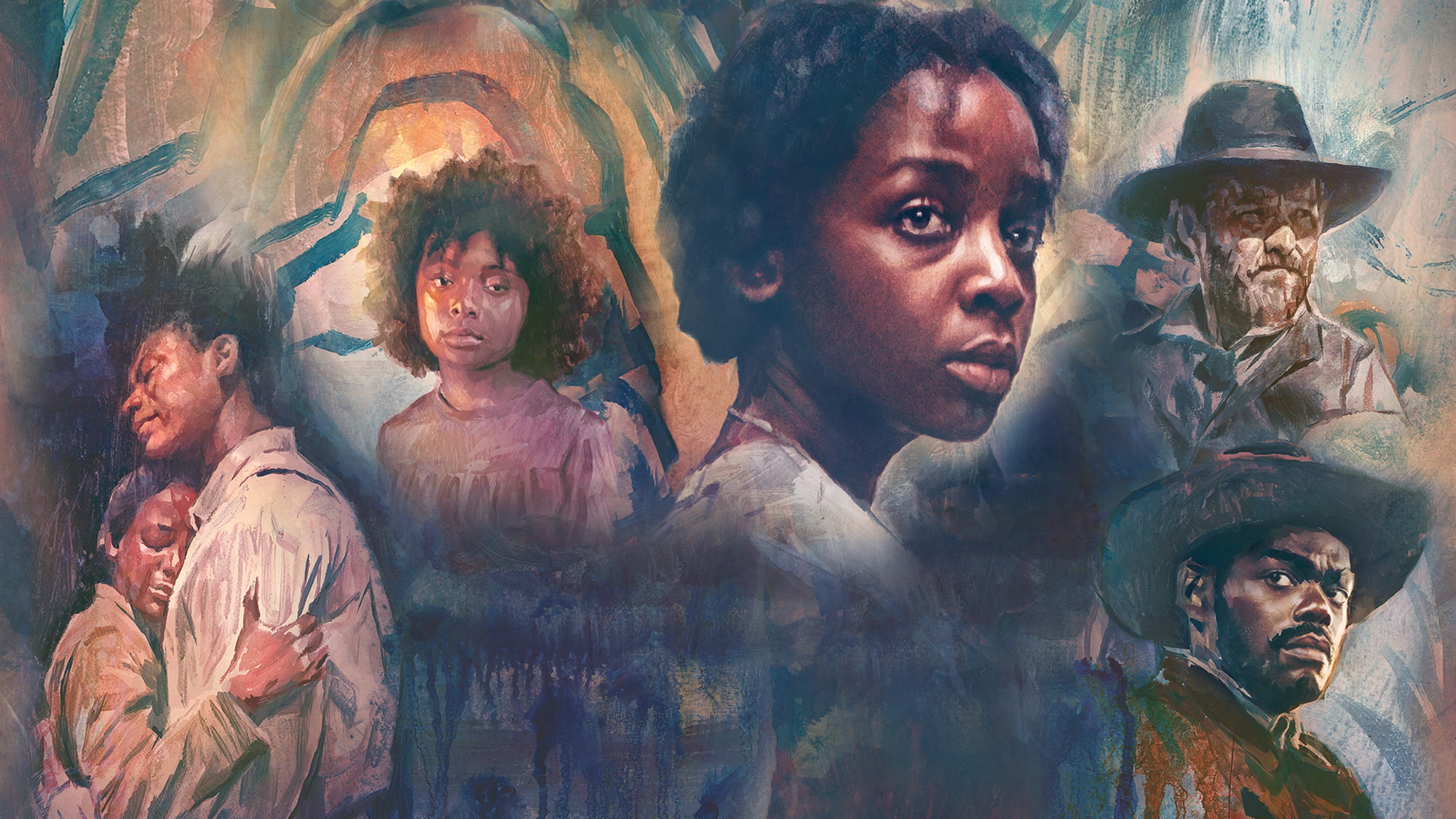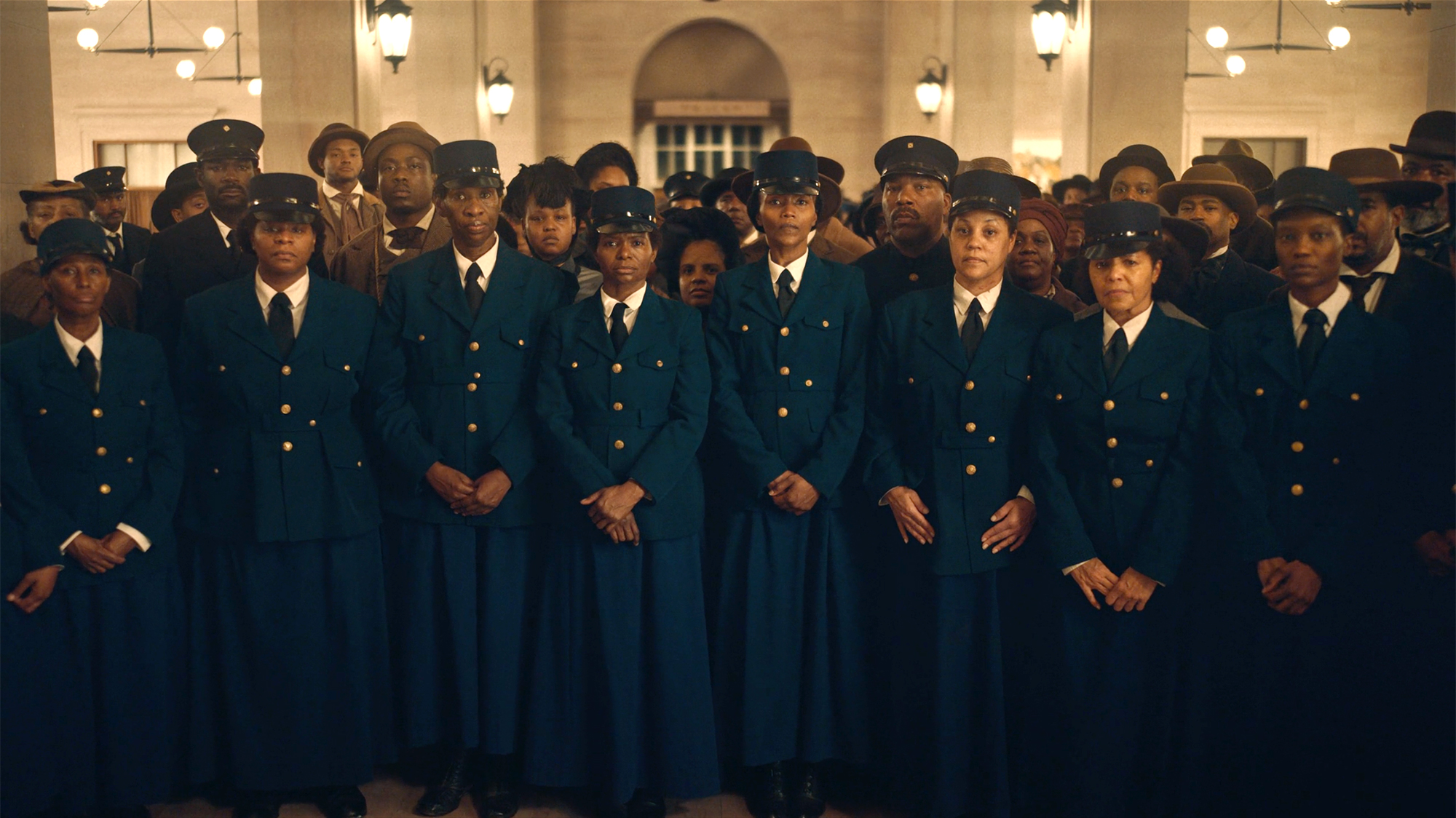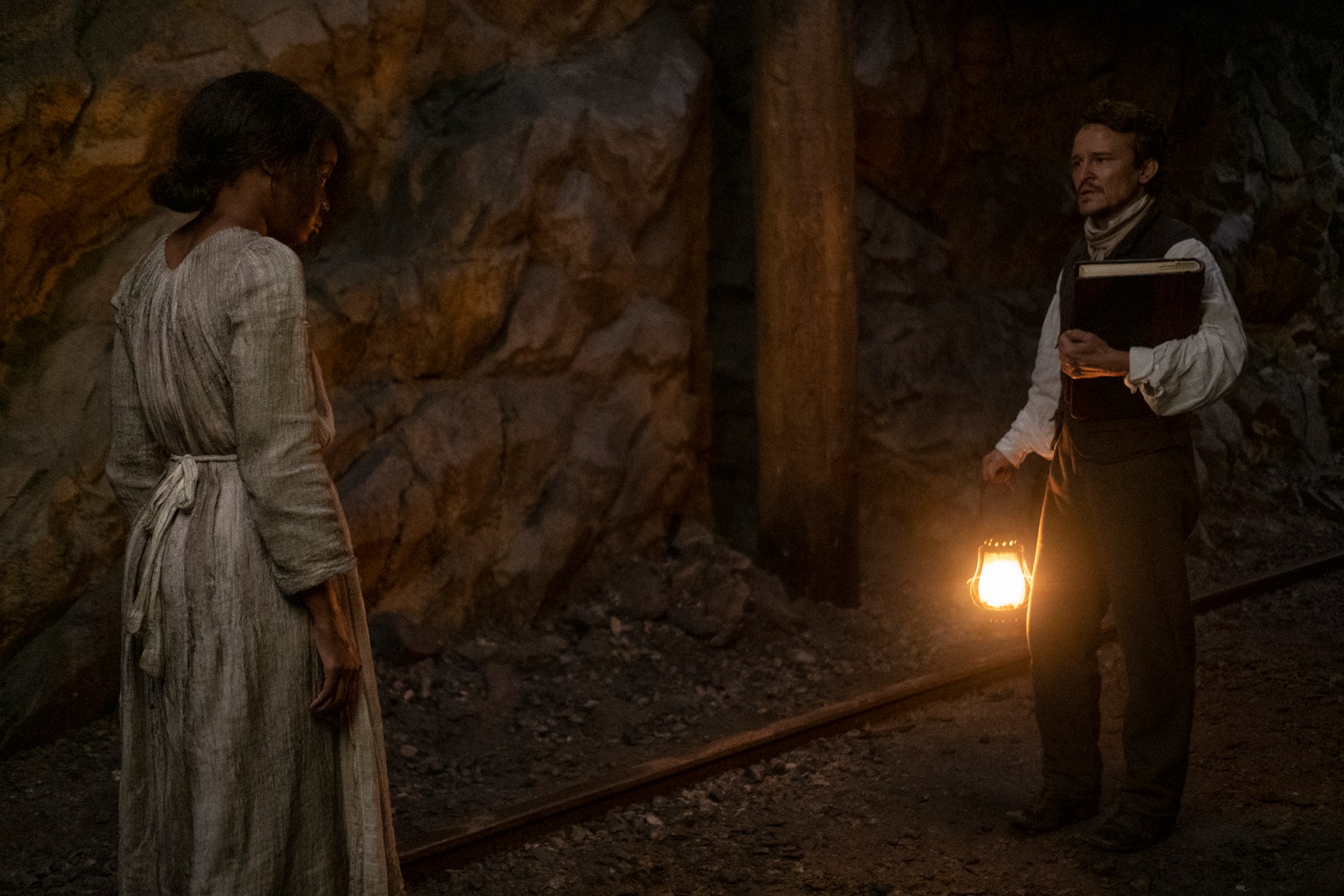Watercooler Wednesdays: Underground Railroad & Exterminate All the Brutes
Watercooler Shows, the trending series that everyone talks about the next day at the office, around the water cooler… today there are no longer offices to go to, the movie theaters are functioning at limited capacity, and the content on the streaming platforms is increasing exponentially. Watercooler Wednesdays seeks to be a (critical) guide through the VoD maze: from masterpiece series to guilty pleasures, and from blockbusters that keep you on the edge of your couch to hidden gems; if it leads to binging, then it’s exactly what we’re looking for.
A few days before this text was published, Juneteenth was officially declared a federal holiday in the United States. Juneteenth is a celebration of African-American culture that marks the emancipation of the last slaves on June 19, 1865. This month’s recommendations address the experience of slavery and racial tensions in America, but do so from totally different perspectives and by various means. The Underground Railroad is a fiction in the key of magic realism about the long road to freedom, while Exterminate All the Brutes is a documentary essay that builds academically, debates polemically, and delivers poetically a thesis that links the white supremacy ideology to the history of genocide. What unites them is not only the fact that they are both made by Oscar-winning filmmakers (Barry Jenkins, respectively Raoul Peck), but also the ambition to work on something of a monumental scale: The Underground Railroad is an epic, Exterminate All the Brutes is a history book with addendums on political philosophy, anthropology, semiotics, military technique, and film criticism.

The Underground Railroad (Barry Jenkins, 2021)
An emotional rollercoaster, here is a cliché used by critics and in film marketing that will never die. But it accurately describes Barry Jenkins’ adaptation of Colson Whitehead’s novel of the same name (winner of the Pulitzer Prize for Fiction in 2016). As if the book wasn’t heartbreaking enough (the road from slavery to freedom, strewn with the corpses of relatives, friends, lovers), Jenkins adds a few extra stops along this platonic train journey (the underground railroad was literally a subterranean network of railways) through the geography and racial history of America. I don’t think there’s ever been a film character worth more redemption than Cora Randall, and Barry Jenkins convinces the audience of that right before getting halfway between Georgia and Tennessee.
“Who built all this? / Who builds anything in this country?” It’s an exchange of lines between one of the slaves who runs away with Cora and the station guard (a white abolitionist) who helps them. It’s the junction point between historical facts and Whitehead’s magic realism, the meticulously polished verbal switch that cuts through centuries of suffering and forced labor, and converts the monumental physical effort of a subjugated race into a revelatory “what if”. What if all the sweat of African people, who later became African-Americans, wasn’t spilled on the plantations, but in the gallery of a huge underground railway tunnel, which runs from south to north (at least until the north as that South)? The Underground Railroad – the secret network of safe houses (stations) and guides (conductors, stationmasters) – did exist in reality, but obviously, it couldn’t have been a railroad, much less an underground one.

Cora (Thuso Mbedu in an excellent performance) is one of the tens of thousands of people of color who used the underground network in an attempt to escape into an infinitely more welcoming world, albeit segregated (in a period when the very concept of segregation was non-existent because things couldn’t be imagined otherwise). Her journey from light to light passes through the darkness of the train tunnel: from the scorching heat of Georgia’s plantations, to the progressive street lamps of South Carolina, to the cold, puritan sun of North Carolina, to the promising twilight of a California that has not yet been incorporated as a state. Every time Cora sticks her head out into the light, looking for a home where she can plant the okra seeds she inherited from her mother, there’s no real hope for a better life.

South Carolina is progressive, but in the eugenic sense: nigger was replaced by negro, the repulsion towards/ fear of a domestic animal became the “scientific” interest in a related species, but not exactly human: the black population is sterilized and used as guinea pigs. It’s a real episode, albeit anachronistic – and that’s exactly what makes it so much more real, the fact that it happened more than a century later. North Carolina abolished slavery, but also black skin – scientific racism was replaced by the dogmatic religious racism of Puritan America, and the economic role served by the Black slave was taken by the Irish servant (Catholic, but at least white). No longer constrained by logistics (investment and profit, breeding of the most capable specimens), the Puritans don’t play around with physical punishment but move straight to genocide. To be fair, many of the abolitionists got involved in the underground network out of religious belief. But it is also fair to add that, to this day, almost 90% of American congregations are exclusively white or black.

In Indiana, in the heart of the fertile Midwest, people of color have managed to create a paradise of their own, envied even by the white community. The failure, now sparked from within, is caused by the fracture that appears between those who want to fit in, to find favor with the White man, and to receive in the community only the people who have legally freed themselves, and those who want to live their dream in segregation, sheltering fugitives from the South. Once again, the film plays with historical landmarks and masterfully stages a debate that took place a century later between MLK and Malcolm X. The expulsion from paradise ultimately comes from the „hubris” of showing the White man that they don’t need them, in fact, they can do better than them, another reference to another place and another time.
At this point, as we witness different trends within the community in terms of their relation to former oppressors, it’s worth introducing the slave catcher named Ridgeway (Joel Edgerton). That’s because he is the exclusive creation of Barry Jenkins, a reflection of the generosity which he surrounds all his characters with. In the book, as in the series, Ridgeway is some kind of Ahab obsessed with this one prey, which he chases all over the continent. Without being explicitly racist (by then standards), the Ridgeway imagined by Jenkins becomes a second main character. As real as he is in all drama and his inner fracture (a slave catcher with an abolitionist father), he comes as a strong symbol of the cognitive dissonance of white America. As much as you want Cora to escape, you want Ridgeway to eventually become one of the good guys. Ridgeway and his entire story are a long unannounced stop by Whitehead’s novel, and a testament to Barry Jenkins’ directorial skill.
The Underground Railroad is available on Amazon Prime.

Exterminate All the Brutes (Raoul Peck, 2021)
If Raoul Peck’s latest documentary were a book, it would be that “fat book” with thick covers that inspires respectability and rigor, which one puts at the beginning of the shelf. A monumental work – as an achievement but also as a personal ambition – from which springs and in which flows any subsequent attempt to investigate the subject covered by that shelf: racism. Peck himself says so in the director’s note: “After my film «I Am Not Your Negro» (…) despite the film’s success, I found out there were vast territories of resistance, innocent stubbornness, and sheer ignorance laying around. I had to address the even bigger picture. I had to find the foundation of it all, and deconstruct it from the ground up.”
Exterminate All the Brutes is not a book, but – like I Am Not Your Negro, which is based on James Baldwin’s unfinished manuscript – it is based on literature, and turns its reading into a cinematic experience. If in the previous film, the narrator’s voice was that of Samuel L. Jackson, here Raoul Peck takes over this task himself, also because the film is built on the biographical relationship with the “adapted” authors who shaped his worldview: “Why do I bring myself into this story? Because I am an immigrant from a shithole country, neutrality is not an option.”

This time there are three literary sources, melted together into a filter – extremely convincing despite the omissions – for reading history (and the history of ideas): “3 words summarize the history of humanity: civilization, colonization, extermination.” Each of the three volumes – written by Sven Lindqvist, Roxanne Dunbar-Ortiz, and Michel-Rolph Trouillot – cover one or two continents that have (literally or figuratively) been bloodied by the white supremacy ideology. From the division and flaying of Africa to the conquest of the Wild West, to the transatlantic slave trade, to the systemic racism imbued in the American dream, to the Holocaust.
Following in the footsteps of his compatriot, the Haitian anthropologist Trouillot, Peck discusses the example of the Haitian Revolution, the only successful slave rebellion that led to the emergence of an independent and democratic state just a few years after the American and French revolutions. Keeping the Haitian example in the dark was inevitable because the recognition of a black democratic state where slavery had been abolished would have annihilated any claim to respectability from the other two gems of the Enlightenment. Peck’s aim is not so much the (generally known) facts as the connections between them and how certain events that contradict the dominant narrative are pushed to the edge of history where they cannot influence the history of ideas, which in turn flows into historical reality and shapes it. Or vice versa, the way reality is scrubbed of any moral asperities through a philosophy that reconciles economic interest with genocide. History is full of such euphemisms often accompanied by fetish moments impossible to dislocate from the collective imagination: the “discovery” of America and the moment when Columbus sets foot on a “new” continent, for example.

Exterminate All the Brutes borrows its title from Sven Lindqvist’s book (1), who in turn borrows it from Joseph Conrad’s Heart of Darkness – it’s a line said by the odious Mr. Kurtz (2) – a character and a narrative we know today rather from the adaptation by Francis Ford Coppola (3), of which Peck quotes a great deal, as he does from the other two sources (4). The chronological order of the 4 cultural artifacts I’ve just mentioned – (2), (3), (1), (4) – is a good example of how Peck deconstructs history and its myths, researching its sources. Conrad’s short story is about the atrocities committed in the Belgian Congo, Coppola’s adaptation focuses on the Vietnam War, Lindqvist’s non-fiction masterpiece sets a clear link between the terrible imprint of colonialism in black Africa and the mental climate that will make genocide possible in the heart of white Europe: racial superiority, Evolution, the idea (inconceivable until the Darwin era) that certain species may disappear altogether and, more importantly, that this extinction is a natural result of progress.
This book of history – which deconstructs the narratives that we all accepted as history – the “fat book” that Raoul Peck writes and adorns in baroque style with all the cinematic techniques at hand (voice-over, animation, found footage, personal archive, visual and literary quotes, fictional vignettes with the white oppressor always played by Josh Hartnett) is not an easy read at all. Exterminate All the Brutes carries a lot of weight, and not just because of its subject matter – however many archive images of victims of massacres piled in mass graves we see, the effect is always the same, and it’s clear that Peck has undertaken a monumental work searching the archives for new visual sources. The weight has more to do with the intellectual effort that Peck’s film demands of the viewer. To condense in a 4-hour miniseries over 5 centuries of racial relations and their cultural, philosophical, and (pseudo)scientific products is a titanic work, and the viewer’s effort should live up to it.

What makes reception difficult is also the chronologically contorted way in which Peck chooses to exhibit this extremely dense history. While you’re still trying to process an academic quote from some European thinker, Peck has already jumped to the arrogant superiority of white men such as those played by Tom Cruise (Magnolia) and Leonardo DiCaprio (Wolf of Wall Street), and further to the unfortunate dismemberment of black characters in blockbusters like Jurassic Park and King Kong. In all this informational avalanche, which the director-narrator machine-guns relentlessly, Peck’s hypnotic voice is the one that grabs your attention and immerses you into the narrative – in a perfect English, with a slight exotic accent, almost at the same level of persuasion as that of Werner Herzog (of course, there is also a quote from Aguirre, the Wrath of God). This voice is also the best indication that Peck has a dual purpose (triple, if we take into account the various autobiographical forays) with this film: it’s an academic course, but it’s also poetry. Peck changes the rhythm and rhyme all the time, periodically reverts to themes he has already covered, and tries new and new metaphors – as with any poem, not everything you understand can be translated (in a review, for example), and not everything has to be/can be understood.
Exterminate All the Brutes is available on HBO Go.
Film critic and journalist, UNATC graduate. Andrei Sendrea wrote for LiterNet, Gândul, FILM and Film Menu, and worked as an editor on the "Ca-n Filme" TV Show. In his free time, he works on his collection of movie stills, which he organizes into idiosyncratic categories. At Films in Frame, he writes the Watercooler Wednesdays column - the monthly top of TV shows/series.
